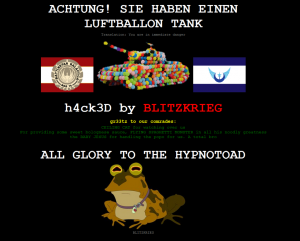The Council for Scientific and Industrial Research (CSIR) recently hosted the nation Cyber Games Challenge as part of Cyber Security Awareness month. The challenge pit teams of 4-5 members from different institutes against each other in a Capture the Flag style contest. In total there were seven teams, with two teams from Rhodes university, two from the University of Pretoria and three teams from the CSIR.
The games were designed around an attack/defence scenario, where teams would be given identical infrastructure which they could then patch against vulnerabilities and at the same time identify possible attack vectors to use against rival teams. After the initial reconnaissance phase teams were expected to conduct a basic forensic investigation to find ‘flags’ hidden throughout their systems. These ‘flags’ were hidden in images, pcap files, alternative data streams and in plain sight.
It was planned that teams would then be given access to a few web servers to attack and deface, gain root, patch and do other fun things to. Once this phase was complete the system would be opened up and the ‘free-for-all’ phase would see teams attacking each others systems. Teams would lose points for each service that was rendered inaccessible. Unfortunately due to technical difficulties the competition did not go as smoothly as initially planned. Once the games started the main website was rendered unusable almost immediately due to teams DirBuster to enumerate the competition scoring system. The offending teams were asked to cease their actions and the games proceeding from there. Two teams were disqualified after not ceasing their attacks on official infrastructure. Once teams tried to access their virtual infrastructure new problems arose, with only the two teams from Rhodes being able to access the ESX server while the rest of the teams based at the CSIR had no connectivity. This was rectified, at a cost, resulting in all teams except for the two Rhodes teams having access to their infrastructure. After a few hours of struggle it was decided to scrap the attack/defence part of the challenge. Teams were awarded points for finding hidden flags, with the most basic flag involving ‘decoding’ a morse-code pattern or a phrase ‘encrypted’ using a quadratic equation. It was unfortunate that the virtual infrastructure did not work as planned as this was to be the main focus of the games and sadly without it many teams were left with very little to do in the time between new ‘flag’ challenges being released.
In the days prior to the challenge our team, team Blitzkrieg, decided to conduct a social engineering exercise. We expected this to add to the spirit of the games and to introduce a little friendly rivalry between the teams prior to the games commencing. A quick google search for “CSIR Cyber Games” revealed a misconfigured cyber games server that had been left exposed on a public interface. Scrapping this page for information allowed us to create a fake Cyber Games site. A fake Twitter account was created on behalf of the CSIR Cyber Games organisers and used to tweet little titbits of disinformation. Once we had set-up our fake site and twitter account, a spoofed email in the name of the games organiser was sent out to all the team captains. Teams were invited to follow our fake user on twitter and to register on our cyber games page. Unfortunately this exercise did not go down too well with the games organisers and our team was threatened with disqualification or starting the games on negative points. In hindsight we should have run this by the organisers first to insure that it was within scope. After the incident we engaged with the organisers to explain our position and intentions, they were very understanding and decided to not disqualify us and waver any point based penalty. As part of our apology, we agreed to submit a few challenges for next years Cyber Games.
Overall we believe concept of using structured Cyber Games to promote security awareness is both fun and useful. While the games were hampered by network issues there was enough content available to make for an entertaining and exciting afternoon. The rush of solving challenges as fast as possible and everyone communicating ideas made for an epic day. In closing, the CSIR Cyber Games was a success, as with all things we believe it will improve over time and provide a good platform to promote security awareness.
For the defacement phase of the games we made a old school defacement page.

